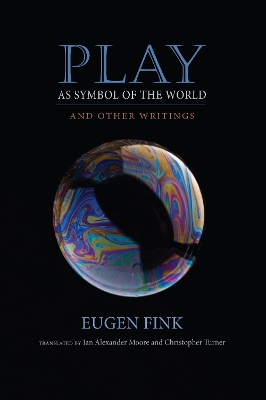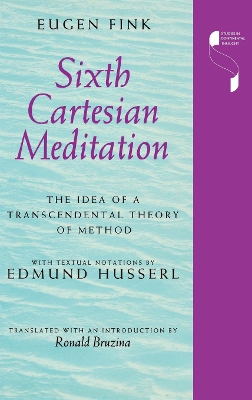Studies in Continental Thought
2 total works
Eugen Fink is considered one of the clearest interpreters of phenomenology and was the preferred conversational partner of Edmund Husserl and Martin Heidegger. In Play as Symbol of the World, Fink offers an original phenomenology of play as he attempts to understand the world through the experience of play. He affirms the philosophical significance of play, why it is more than idle amusement, and reflects on the movement from "child's play" to "cosmic play." Well-known for its nontechnical, literary style, this skillful translation by Ian Alexander Moore and Christopher Turner invites engagement with Fink's philosophy of play and related writings on sports, festivals, and ancient cult practices.
"Ronald Bruzina's superb translation . . . makes available in English a text of singular historical and systematic importance for phenomenology." —Husserl Studies
". . . a pivotal document in the development of phenomenology . . . essential reading for students of phenomenology twentieth-century thought." —Word Trade
" . . . an invaluable addition to the corpus of Husserl scholarship. More than simply a scholarly treatise, however, it is the result of Fink's collaboration with Husserl during the last ten years of Husserl's life. . . . This truly essential work in phenomenology should find a prominent place alongside Husserl's own works. For readers interested in phenomenology—and in Husserl in particular—it cannot be recommended highly enough." —Choice
" . . . a thorough critique of Husserl's transcendental phenomenology . . . raises many new questions. . . . a classic." —J. N. Mohanty
A foundational text in Husserlian phenomenology, written in 1932 and now available in English for the first time.

